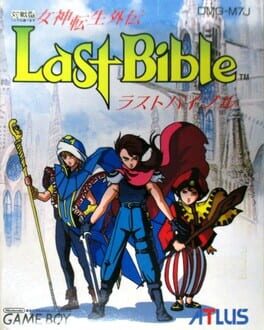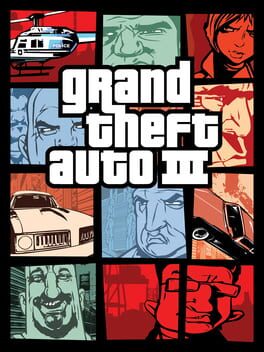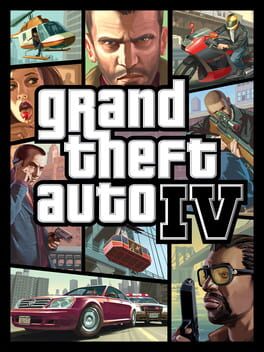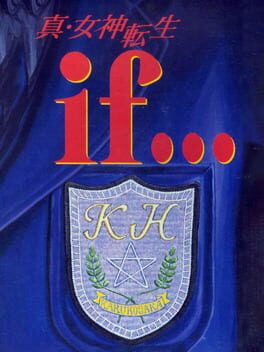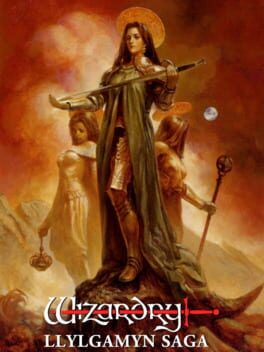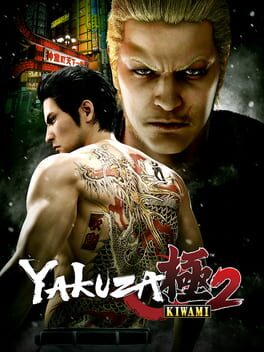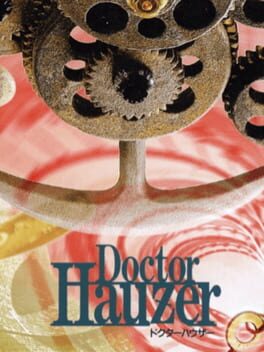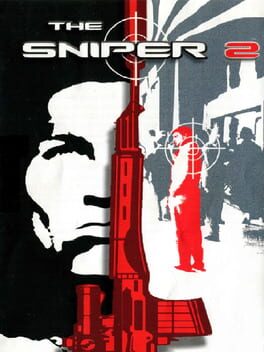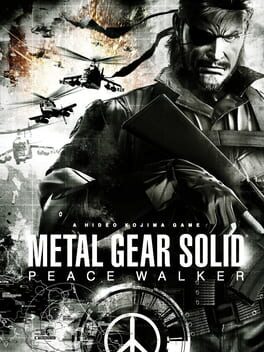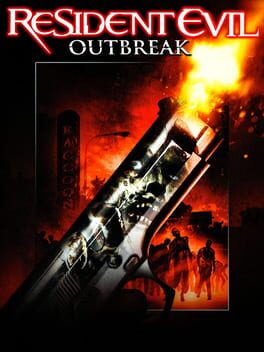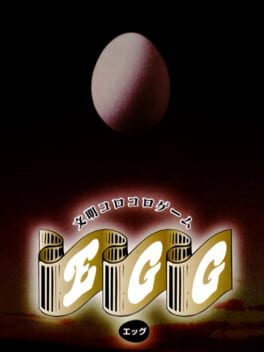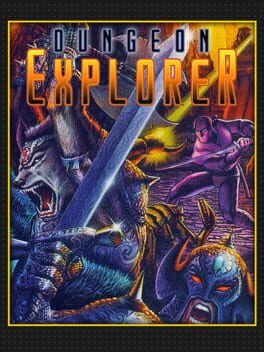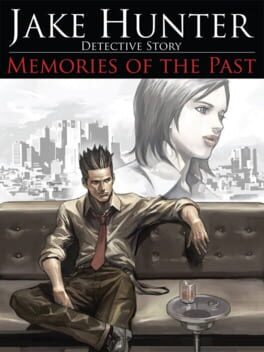goznog
I played the Game Gear version which only differs in graphics and music. gameplay is exactly the same except for an extended ending sequence, and I recommend playing the GG version for this alone (it's been fan translated with a new, better script!).
Last Bible (as it's known in Japan) is probably the most overlooked series in the MegaTen franchise, frequently mislabelled as set in "medieval times". this game is actually something of a Dragon Quest clone, and certainly not the worst one out there. the story is quite surprising for a Game Boy RPG and has nice moments of drama, definitely offering a bit more than a "generic fantasy story". it has a quick pace and charming presentation, with enough entertainment to make it worth finishing.
unfortunately the game design is screwy, to say the least. sometimes you'll be running through the game with little challenge, before suddenly having to climb a tower that wrecks your party with large groups of damage sponges. the mechanics aren't very polished, with beast negotiation being a bit too simple; it's only a set of yes/no choices that you have to answer in the correct order depending on a whopping 4 or 5 personalities. the fusion system is almost useless as the game won't let you make most of the fusions you try to attempt. by the time you can, you'll be able to recruit them off the field anyway. you can discover secret fossilised monsters to recruit, and once you do so they can't ever leave your party. they're strong enough to get you through the ending, but it does undermine the open endedness of the game.
coming almost 3 years after the first SaGa/Final Fantasy Legend game it feels somewhat lacking compared to other portable RPGs on the market, but it's still quite enjoyable. the music seriously deserves a shoutout, it's probably the game's strongest asset (check out the final boss Lucifer theme). the sequel would polish the mechanics established here and make for a much stronger game in general.
Last Bible (as it's known in Japan) is probably the most overlooked series in the MegaTen franchise, frequently mislabelled as set in "medieval times". this game is actually something of a Dragon Quest clone, and certainly not the worst one out there. the story is quite surprising for a Game Boy RPG and has nice moments of drama, definitely offering a bit more than a "generic fantasy story". it has a quick pace and charming presentation, with enough entertainment to make it worth finishing.
unfortunately the game design is screwy, to say the least. sometimes you'll be running through the game with little challenge, before suddenly having to climb a tower that wrecks your party with large groups of damage sponges. the mechanics aren't very polished, with beast negotiation being a bit too simple; it's only a set of yes/no choices that you have to answer in the correct order depending on a whopping 4 or 5 personalities. the fusion system is almost useless as the game won't let you make most of the fusions you try to attempt. by the time you can, you'll be able to recruit them off the field anyway. you can discover secret fossilised monsters to recruit, and once you do so they can't ever leave your party. they're strong enough to get you through the ending, but it does undermine the open endedness of the game.
coming almost 3 years after the first SaGa/Final Fantasy Legend game it feels somewhat lacking compared to other portable RPGs on the market, but it's still quite enjoyable. the music seriously deserves a shoutout, it's probably the game's strongest asset (check out the final boss Lucifer theme). the sequel would polish the mechanics established here and make for a much stronger game in general.
2001
the reviews that quickly throw out "it's dated" without saying much else are pretty disappointing, because all the guff that plagues the proceeding games in the series shows just how perfect this one is.
not a moment is wasted in GTA 3. you have a city that's actually fun to explore and drive around in, the missions are truly open ended and challenging, and there's none of that Rockstar Games-brand mediocre prestige TV wannabe writing to bog down the experience. the story is only a vehicle for you to take on more bonkers vehicle challenges peppered with occasional gunfights, while current GTAs seemingly focus on the opposite. the atmosphere is top notch; there really is nothing else that compares with blazing through Liberty at night while listening to a classic Moving Shadow drum 'n bass set.
it's a classic game with a perfect formula that only got more and more muddled as the series went on. I don't understand why this gets overlooked so frequently these days, especially when its more popular follow up Vice City is far less exciting (unless grinding asset missions while circling around two flat islands really gets your rocks off).
not a moment is wasted in GTA 3. you have a city that's actually fun to explore and drive around in, the missions are truly open ended and challenging, and there's none of that Rockstar Games-brand mediocre prestige TV wannabe writing to bog down the experience. the story is only a vehicle for you to take on more bonkers vehicle challenges peppered with occasional gunfights, while current GTAs seemingly focus on the opposite. the atmosphere is top notch; there really is nothing else that compares with blazing through Liberty at night while listening to a classic Moving Shadow drum 'n bass set.
it's a classic game with a perfect formula that only got more and more muddled as the series went on. I don't understand why this gets overlooked so frequently these days, especially when its more popular follow up Vice City is far less exciting (unless grinding asset missions while circling around two flat islands really gets your rocks off).
the premise sounds a little tired at this point, but moon's promise of an RPG story flipped on its head is backed up with a sincere love for RPGs and games in general. no lame cynicism or tired parody here. everything in this game just makes me smile.
I think I would have liked to have played this much earlier before COVID, and maybe via a fan translation cos I like old playstation more than nintendo and it would make me feel a little smug about playing it, but I'm glad during a time like this it's now available in english for more western players to enjoy. please resist the urge to look up a guide, at least not until the end, and just take pleasure in this lovely adventure game. (remember to read the manual though)
my favourite moondisc is The Other Jet... or it might be Warp Wet Woods... or Silver Thread Spinning Song... actually I think it's
I think I would have liked to have played this much earlier before COVID, and maybe via a fan translation cos I like old playstation more than nintendo and it would make me feel a little smug about playing it, but I'm glad during a time like this it's now available in english for more western players to enjoy. please resist the urge to look up a guide, at least not until the end, and just take pleasure in this lovely adventure game. (remember to read the manual though)
my favourite moondisc is The Other Jet... or it might be Warp Wet Woods... or Silver Thread Spinning Song... actually I think it's
2008
it is a bit of a draining experience, but it's probably the most enjoyable Rockstar story. I could rag on about the annoying design too (don't get 2 metres away from your target! don't do anything we don't tell you to do!), but I really love how "real" the world feels. it's genuinely still impressive to me in 2020, GTA V just doesn't hold a candle to it.
also I shit pants when smashing pumpkins 1979 comes on the radio and the chick who DJs vladivostok FM is great
also I shit pants when smashing pumpkins 1979 comes on the radio and the chick who DJs vladivostok FM is great
Shin Megami Tensei 2 with none of the cool story and all of the tedium. new mechanics like the "Guardian Angel" system feel like they got a quick blurb written down and then were immediately programmed in. the alternate routes are botched; two of them are essentially duplicates and another offers just one unique dungeon and no proper climax, the post-game route is the only unique one.
if you've not played the previous games it could be quite enjoyable, otherwise it's too much of the same. the PlayStation port has some additions that slightly improve the game, and you're not missing out on anything by playing that over SNES... unless you can't speak Japanese.
if you've not played the previous games it could be quite enjoyable, otherwise it's too much of the same. the PlayStation port has some additions that slightly improve the game, and you're not missing out on anything by playing that over SNES... unless you can't speak Japanese.
this is just a feature-listy review of this specific port of Wizardry 1-3 for PS1. you should know what you're getting into when you play these games.
it's a solid, good port of the classic Wizardry trilogy. the original game mechanics are kept, no Wiz V ninja/thief ambushes here unlike the SNES port (though updates from later revisions are implemented). the dungeon balance has been tweaked slightly and an automap is available to make play more comfortable. Jun Suemi's now iconic enemy redesigns are also used here, and Kentaro Haneda has provided a new CD soundtrack (as in, completely new from his NES music) to help enhance the game. the 3D graphics are tasteful and work well, but not especially interesting. unfortunately there were some poor choices made in translating the interface from keyboard to controller, resulting in constant accidental choices as you get used to navigating the menus.
if you want a relatively pure Wizardry 1-3 experience without playing the PC originals, this is the best way to go about it in my opinion. if you're alright with some additional gameplay changes, the SNES port is worth a look. the game has a settings menu that lets you use the original English text from the PC games with no cuts (slightly revised to accommodate for the fact it's a trilogy like in other revisions), and you can even use the original graphics if the Suemi art or 3D dungeons don't appeal to you.
it's a solid, good port of the classic Wizardry trilogy. the original game mechanics are kept, no Wiz V ninja/thief ambushes here unlike the SNES port (though updates from later revisions are implemented). the dungeon balance has been tweaked slightly and an automap is available to make play more comfortable. Jun Suemi's now iconic enemy redesigns are also used here, and Kentaro Haneda has provided a new CD soundtrack (as in, completely new from his NES music) to help enhance the game. the 3D graphics are tasteful and work well, but not especially interesting. unfortunately there were some poor choices made in translating the interface from keyboard to controller, resulting in constant accidental choices as you get used to navigating the menus.
if you want a relatively pure Wizardry 1-3 experience without playing the PC originals, this is the best way to go about it in my opinion. if you're alright with some additional gameplay changes, the SNES port is worth a look. the game has a settings menu that lets you use the original English text from the PC games with no cuts (slightly revised to accommodate for the fact it's a trilogy like in other revisions), and you can even use the original graphics if the Suemi art or 3D dungeons don't appeal to you.
2017
literally soul vs. soulless. every single bit of the original's presentation has been crushed into some sloppy paste. whatever it can't recycle from yakuza 6 is recycled from yakuza 0 and then recycled from the PS2 game, and everything else that's actually original is horrifically unpolished even by this series' standards.
if slapping PS2 animations on 2017 models, gutting set pieces, substituting Norihiko Hibino's score (MGS2 and 3 composer) for dull song loops, and awkwardly crowbarring in uninteresting side content into the main story is your idea of a good remake then you should probably be put out back and shot
if slapping PS2 animations on 2017 models, gutting set pieces, substituting Norihiko Hibino's score (MGS2 and 3 composer) for dull song loops, and awkwardly crowbarring in uninteresting side content into the main story is your idea of a good remake then you should probably be put out back and shot
1999
timeless adventure game. walking around, looking in every nook and cranny for something to fiddle with as time passes by is really soothing. lots of memorable characters, places and moments that you could entirely miss on your first playthrough. comparisons to yakuza should be ignored, they're not the same game at all nor are they trying to reach the same goal. it's only for superficial observations that these games get brought up in comparison to each other.
1994
2002
"Survival of the fittest" is said to be a low of nature. If so, does that mean that wars can also be considered to occur in accordance with the laws of nature?
I don't know the answer.
But I have faith in one thing: That a person can accurately guess the feelings of another.
a highlight of the Simple 2500 series, staking its claim on the "sniper simulator" genre along with its predecessor that would later become a popular theme with Flash games. the game is presented as a charming parody of TV drama/thriller shows, going so far as to place opening and ending credits between each mission, but the baffling translation job done for the European version MUST be seen to believed. second to none, this is THE funniest game you will ever play.
featuring Tsukasa Masuko of Shin Megami Tensei fame on the soundtrack, but you wouldn't believe it if he wasn't on the credits.
I don't know the answer.
But I have faith in one thing: That a person can accurately guess the feelings of another.
a highlight of the Simple 2500 series, staking its claim on the "sniper simulator" genre along with its predecessor that would later become a popular theme with Flash games. the game is presented as a charming parody of TV drama/thriller shows, going so far as to place opening and ending credits between each mission, but the baffling translation job done for the European version MUST be seen to believed. second to none, this is THE funniest game you will ever play.
featuring Tsukasa Masuko of Shin Megami Tensei fame on the soundtrack, but you wouldn't believe it if he wasn't on the credits.
despite the annoying player limitations you'll sometimes face, this game is incredibly fun in co-op and is absolutely how the game should be played. "anything is fun with a friend" you might say, but the game is clearly balanced around co-operative play. this aspect is where I imagine most of the negative impressions of the game come from.
it's a much better try at a quick, portable MGS experience than Portable Ops and a really misunderstood game in general.
it's a much better try at a quick, portable MGS experience than Portable Ops and a really misunderstood game in general.
severely underrated, frantic and intense co-op game. it's exactly what it promise: classic resi evil co-op with no compromises. further improved in File #2, though the scenarios are arguably a little too punishing in that game.
Outbreak's from a period when Capcom were a company that actually took risks. communication is crucial yet limited, the difficulty is unflinching, puzzles are abundant, and real strategy is needed to clear each scenario. it's as far from a casual experience as you could get in a co-op game, but all the better for it. nothing else I've played is this chaotic or satisfying to play.
my only criticism is that as I mentioned, the communication options in this game aren't ideal. basic commands are left to fixed inputs that are too vague to parse most of the time ("player, go" or "no, help" is as good as it gets), while the specific commands you'd actually want to use are for an exclusive "context sensitive" button that could change at any point. tell someone you're poisoned you'll have to quickly tap this button and hope someone notices the brief voice clip and text that'll appear among all the other players trying to get a word in, if anyone is in the room with you to begin with. nowadays people will just use VOIP programs to talk while playing on an emulator, which goes against Capcom's vision of the game but is admittedly much better than their solution.
if you feel burned by low effort crap like Operation Raccoon City and Resistance, I promise that the Outbreak duology will deliver the proper survival horror co-op experience you're looking for.
Outbreak's from a period when Capcom were a company that actually took risks. communication is crucial yet limited, the difficulty is unflinching, puzzles are abundant, and real strategy is needed to clear each scenario. it's as far from a casual experience as you could get in a co-op game, but all the better for it. nothing else I've played is this chaotic or satisfying to play.
my only criticism is that as I mentioned, the communication options in this game aren't ideal. basic commands are left to fixed inputs that are too vague to parse most of the time ("player, go" or "no, help" is as good as it gets), while the specific commands you'd actually want to use are for an exclusive "context sensitive" button that could change at any point. tell someone you're poisoned you'll have to quickly tap this button and hope someone notices the brief voice clip and text that'll appear among all the other players trying to get a word in, if anyone is in the room with you to begin with. nowadays people will just use VOIP programs to talk while playing on an emulator, which goes against Capcom's vision of the game but is admittedly much better than their solution.
if you feel burned by low effort crap like Operation Raccoon City and Resistance, I promise that the Outbreak duology will deliver the proper survival horror co-op experience you're looking for.
1998
the egg gives live, and the egg takes it away.
"Egg" is both completely bonkers and very natural. the sound design perfectly captures the essence of the game; you're gazing upon something far beyond your comprehension. from the womb to the grave, war and conflict is something all humans desire deep within themselves. each golf putt along the field spreads the tyranny of the egg, yet the egg is just as fragile as it is cruel. the strategy required to defeat your opponents comes not from your developed brain, but from a feeling within your heart carried all the way from the primordial soup of mankind. you must properly assess the wind, terrain, and force of your putt to enact domination over the opposing empire.
I'm not sure what changed along the way for BEYOND Interactive to go from this to "Muzzle Flash" for the Xbox, but I will make sure this moment in Japanese PlayStation history is not forgotten. I'm the only reason this is even on the database.
"Egg" is both completely bonkers and very natural. the sound design perfectly captures the essence of the game; you're gazing upon something far beyond your comprehension. from the womb to the grave, war and conflict is something all humans desire deep within themselves. each golf putt along the field spreads the tyranny of the egg, yet the egg is just as fragile as it is cruel. the strategy required to defeat your opponents comes not from your developed brain, but from a feeling within your heart carried all the way from the primordial soup of mankind. you must properly assess the wind, terrain, and force of your putt to enact domination over the opposing empire.
I'm not sure what changed along the way for BEYOND Interactive to go from this to "Muzzle Flash" for the Xbox, but I will make sure this moment in Japanese PlayStation history is not forgotten. I'm the only reason this is even on the database.
1989
ATLUS' take on Gauntlet, great burst of co-op fun from the early-mid PCE library. the music is supplied by the legend Tsukasa Masuko, and it's all on par with his MegaTen work (check out the Castle theme!). it's not much of a dungeon crawler and is far more action orientated, which is appropriate for the co-op experience it's catering to. play with the maximum 5(!) players for absolute chaos.
great collection of several fun detective romps and brainteasers with cool and fun atmosphere. it has a clearly lower budget than some its mystery adventure contemporaries, but it's smartly used and packs a good variety of content and quality presentation to make it worth your time.
the main story within is an original scenario written for the DS game that stitches together the first 5 sub-scenarios of the then-current Jinguuji Saburou feature phone "novel" series, hence the subtitle. the first 4 are reinterpretations of the original Famicom adventure games with wildly different stories (though the 4th is quite faithful), and the remaining 5th is the first original story for this mobile series. the connections to all these stories are pretty loose, but the way they're utilised in the main scenario is still a much more fun way to include them than simply listing them all in the main menu (though it does do that as well...)
the rest of the game is made up of goofy mini-stories stuffed with branches and gags to look out for, while also letting you solve the mystery yourself instead of following the linear novel structure of the main game.
the writing (both in the original Japanese and in translation) is presented as a sincere homage to classic detective noir fiction, as is the atmosphere referred to earlier. characters are a balanced bunch of quirks and vices, and the scenarios are layered in such a way that makes the journey of discovering the truth behind each mystery an immediately appealing one. there aren't any absurd antics, subversions or unhinged philosophy rants to be found here but that doesn't make it a boring story, does it?
a great comparison I read is that playing these games is like watching an episode of your favourite TV drama series. you're not about to have your mind blown by any particular piece of writing, but the overall experience makes it comforting and still memorable.
also the jazz MIDI music kicks ass. seiichi hamada's one of the few staffers who's been with the series since the very beginning in the late 80s and he's still going.
the main story within is an original scenario written for the DS game that stitches together the first 5 sub-scenarios of the then-current Jinguuji Saburou feature phone "novel" series, hence the subtitle. the first 4 are reinterpretations of the original Famicom adventure games with wildly different stories (though the 4th is quite faithful), and the remaining 5th is the first original story for this mobile series. the connections to all these stories are pretty loose, but the way they're utilised in the main scenario is still a much more fun way to include them than simply listing them all in the main menu (though it does do that as well...)
the rest of the game is made up of goofy mini-stories stuffed with branches and gags to look out for, while also letting you solve the mystery yourself instead of following the linear novel structure of the main game.
the writing (both in the original Japanese and in translation) is presented as a sincere homage to classic detective noir fiction, as is the atmosphere referred to earlier. characters are a balanced bunch of quirks and vices, and the scenarios are layered in such a way that makes the journey of discovering the truth behind each mystery an immediately appealing one. there aren't any absurd antics, subversions or unhinged philosophy rants to be found here but that doesn't make it a boring story, does it?
a great comparison I read is that playing these games is like watching an episode of your favourite TV drama series. you're not about to have your mind blown by any particular piece of writing, but the overall experience makes it comforting and still memorable.
also the jazz MIDI music kicks ass. seiichi hamada's one of the few staffers who's been with the series since the very beginning in the late 80s and he's still going.
